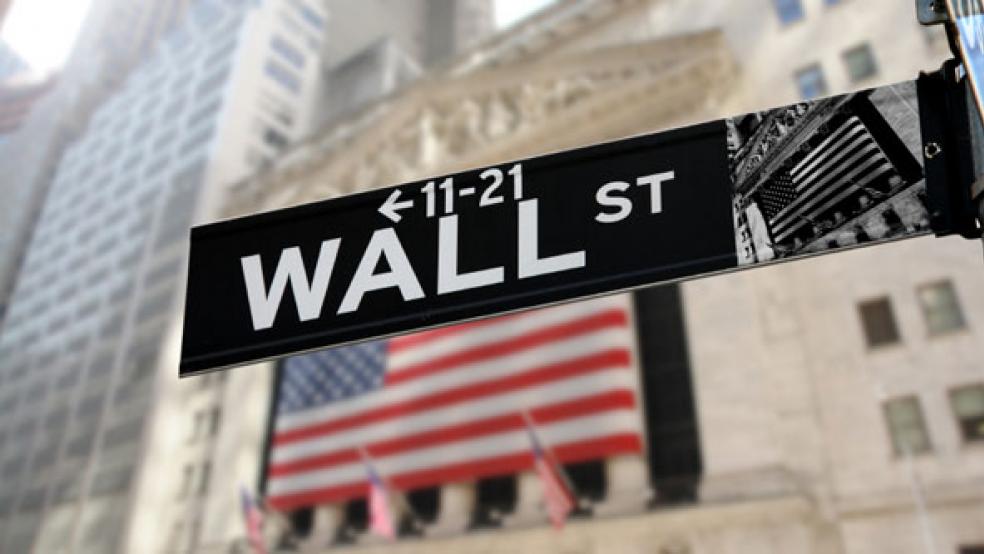Over the last several hundred years, financial panics have repeatedly caused severe economic turmoil. For example, there were financial panics every 10 to 20 years in the late 1700s, 1800s, and early 1900s, many of which resulted in severe recessions.
To combat this instability, new rules and regulations were imposed on the financial sector after the Great Recession, and for approximately 50 years this seemed to be very successful. The bank panics that had caused so much trouble appeared to be over. But in recent years there has been a return of financial instability in the relatively unregulated shadow banking system, and a “Great Recession” associated with a financial meltdown.
Related: The Problem with Completely Free Markets
The conclusion seems obvious. No matter what we do in terms of regulating the financial sector, the risk of a financial collapse and subsequent recession is always present. Given this, a question to ask is who should pay the costs of the inevitable meltdown? That is, when the financial sector gets into trouble, as it surely will at some point in the future, who should shoulder the burden?
The CEOs, managers, and the like who made millions and millions from the activities that eventually led to financial problems, or typical working class households who had nothing to do with causing the financial problems, people who show up for work every day, do their jobs, and simply want to find a way to make it through the month?
I believe that far too much of the cost of the financial meltdown was imposed on working class households and far too little on the industry itself. Is there a way to change this? Can we shift more of the cost of financial meltdowns to the financial industry? Yes we can, and one way to do this is to implement a financial transactions tax.
Related: How Fiscal Policy Failed During the Great Recession
The motivation for this is that there are externalities associated with the operation of a financial system, costs that fall on households that had nothing at all to do with the financial sector’s problems. A financial transactions tax, or something similar, forces the financial industry to internalize these costs and curtail the risky behavior that can cause big problems for the economy. Thus, while taxes are often distortionary, in this case the tax would improve the efficiency of financial markets by forcing the industry to consider the full cost of trading in risky assets.
One objection to such a tax is that it will reduce long-term investment and harm economic growth. But just as a factory will produce too much pollution if it is not required to pay the environmental costs associated with production, the financial industry will produce too much risk if it does not face the full cost of providing financial services. To the extent that long-term investment does fall, it is eliminating excessive risk-taking and that is a positive rather than a negative for the economy. In addition, since the effect of a financial transactions tax would be felt strongest in areas such as high frequency trading – an activity that pushes profits around among investors but has little to do with productive investment – the effect is unlikely to be large in any case.
A second objection is that if the US imposes a financial transactions tax, financial companies will move to other countries or find a way to restructure their financial activities and avoid the tax. I don’t think this is much of an objection. Most trades are made through centralized exchanges, or are recorded in some way, so keeping track of financial transactions and then imposing a tax is not that difficult. In addition, the UK has had a tax on stocks for some time, and that hasn’t caused all of the financial activity in London to move elsewhere. If the US follows suit and also imposes such a tax, Wall Street will survive.
Related: Why the Next Recession Will Be Different
According to researchers at the Dallas Fed, “The cost of the crisis, assuming output eventually returns to its pre-crisis trend path, is an output loss of $6 trillion to $14 trillion. This amounts to $50,000 to $120,000 for every U.S. household.” And if the economy does not return to its pre-crisis tend path, i.e. if some of the effects of the recession are permanent, as seems increasingly likely, the cost will be even higher.
If we want to reduce risk-taking behavior, minimize the chance of financial panics and deep recessions, and provide the funds needed to offset the costs of financial panics for working class households, then shifting more of the costs of financial meltdowns to the financial sector is essential. Of course, any attempt to implement a financial transactions tax will be vigorously opposed by the politically powerful financial industry. Getting other people to pay the part of the cost of doing business is good work if you can get it, and participants in the industry don’t want to give that up. But it’s a lousy deal for the rest of us, and it’s time for that to change.



